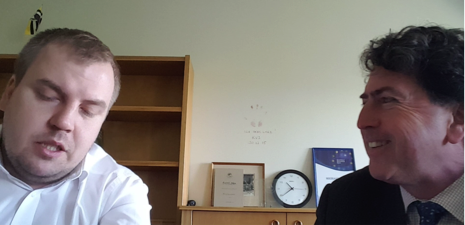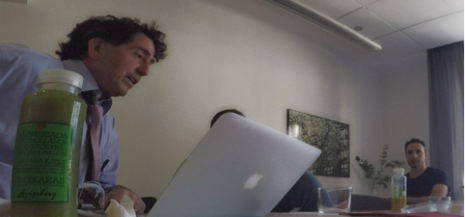My Old School
 The last two weeks have taken me back to my old high school, college, and graduate school. My trip back to Redwood High was for a reunion – but it triggered thoughts resulting in my post this week in US News, “Politics Today Make Me Miss High School.” My visits to Brown University and Harvard’s Kennedy School of Government, on the other hand, were outgrowths of the very frustrations expressed in the US News piece.
The last two weeks have taken me back to my old high school, college, and graduate school. My trip back to Redwood High was for a reunion – but it triggered thoughts resulting in my post this week in US News, “Politics Today Make Me Miss High School.” My visits to Brown University and Harvard’s Kennedy School of Government, on the other hand, were outgrowths of the very frustrations expressed in the US News piece.
As I’ve noted here before, earlier this year I reorganized my business life to focus less on advising governments and elected officials (although I’m still doing that with my firm, Public Works) and more on other activities including writing, teaching and launching the “social venture” I’ve been thinking about for several years – related to all the writing and teaching.
I mentioned in my last update that I’ve been working on new models for delivering public goods and would be discussing these with officials at Brown, where I hope to institutionalize some of this work as a sort of “Davos for Doing Good,” and with students at the Kennedy School. I wanted to share with you an edited transcript of my talk at Harvard last week explaining in more detail what I’m thinking, so we could continue the conversation:
I write for a variety of publications, and teach at the University of Chicago’s graduate policy school, on “The Future of Government” – which was also the impetus behind the original founding of Public Works: The world is changing. Borders are falling, distinctions are blurring. Non-public sector entities will increasingly “do” government – which leads me to my newest venture.
Here’s the idea. Governments are now selling their services to citizens of other countries: I went to Estonia earlier this year, which is selling its business registration and business services to entrepreneurs elsewhere.

With Slim Sikkut, policy advisor to Estonia’s Prime Minister.

Meeting with communications consultants in Sweden.
I visited Scandinavia, where governments are both competing and cooperating across national borders in the delivery of mail to citizens of each other’s countries. There will be more of this in the future – in a decade or two, you will be getting your retirement from the German pension system, your business services from Estonia, your kids’ educations from Singapore or Arizona State University, your health insurance from Scandinavia. Once that happens, there’s no reason that non-governmental organizations – for-profits, non-profits, even extra-legal entities – can’t deliver the same services, and they basically already do. There are entities already attempting to create private “governments,” relying on platform and blockchain technologies – which is going to revolutionize service provision more than the Internet has done – but right now these are confined to services like property registries, marriages, ID, and a national anthem. I think these technologies can be applied more creatively to enable the provision of public goods beyond the areas like security, war-making, education, private legal systems, or garbage pickup where private models already exist.
What’s done less successfully is the delivery of classic public goods, like justice, trust, and equity, because those are traditionally incapable of generating value that can be quantified, captured, and monetized. Technology is changing that, lowering the marginal cost of just about everything – including the transaction costs of collective action, which is basically what governments do – and making it possible to monetize and capture value that previously could not be monetized and captured. That makes it possible to have profitable and sustainable business models for delivering more public goods.
I believe we can capture and monetize the benefits of reducing poverty, investing in human capital, increasing social trust and justice, and promoting opportunity – and, in doing so, increase their provision. Launching a business model to do that is my goal over the next year – and that requires tech, finance, business and start-up expertise, and I need some smart Harvard students to help with that. So, if you know any, let me know.
As always, I would love to know your thoughts. Feel free to leave your comments below.
Leave A Comment







One Comment
There’s a lot to unpack here! When is the local seminar?